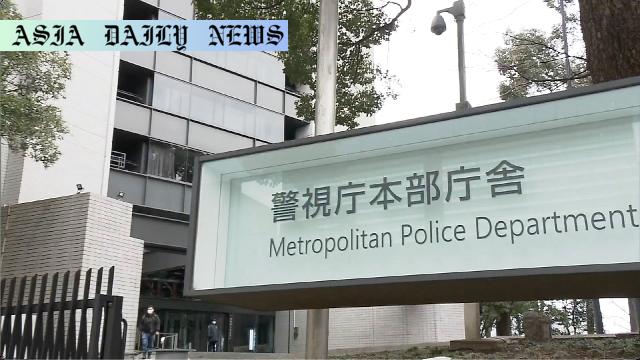Money Laundering: Tokyo police arrest three suspects linked to a large-scale laundering operation involving $326 million.
Key Point 1: Tokyo police arrested three suspects for violating organized crime laws.
Key Point 2: Investigators suspect laundering of $326M across multiple accounts.
Key Point 3: The suspects are tied to domestic and overseas fraud groups, including in China and Vietnam.
Key Point 4: Police revealed involvement in a social media investment scheme targeting elderly victims.

Massive Money Laundering Network Exposed
Tokyo police have arrested three individuals, including Hayashi Meio, a 37-year-old corporate executive, in connection with one of the largest money-laundering operations in recent history. The suspects are accused of violating the law against organized crimes, transferring approximately 64 million yen — about $417,000 — to obscure the origin of the funds. Investigators believe their operations extend far beyond this particular transfer, reaching into transactions of up to 50 billion yen (around $326 million), making this an internationally connected case of significant magnitude.
Details of the Case
Authorities disclosed that the suspects were managing about 300 corporate bank accounts. By leveraging these accounts, they allegedly processed billions of yen earned through fraudulent activities both in Japan and abroad. In one specific case, the suspects handled funds stolen via a social media investment scam, targeting a 70-year-old man from Kanagawa Prefecture. The victim was tricked into a scheme that promised steady returns but ended in financial loss.
International Connections to Fraud Networks
Further investigations revealed potential ties to overseas criminal groups based in China and Vietnam. These groups are believed to have laundered illicit earnings through the suspects. It is suspected that the group facilitated transactions, cloaking their origins, and received significant proceeds funneled from fraud organizations on a global scale.
Scale of Operation Raises Concerns
The scale of the operation has raised alarms in law enforcement and finance monitoring systems. Managing 300 corporate accounts and transacting billions suggests the involvement of highly sophisticated mechanisms. Experts emphasize the need to enhance surveillance and regulation to identify similar schemes early and prevent large financial crimes from thriving in the shadows.
No Admission from Suspects Yet
While the police continue their interrogation, they have not confirmed whether the suspects have admitted to their crimes. This withholding of acknowledgment from the accused adds a layer of challenge to uncovering the full scope of their activities. Legal proceedings are expected to delve deeper into their operations and connections.
Impact on Global Financial Systems
The ramifications of such laundering schemes ripple far and wide. By laundering funds generated from fraudulent activities, these operations erode trust in financial institutions and create loopholes criminal networks can exploit. Anti-money laundering efforts must intensify, incorporating cutting-edge techniques and cross-border collaboration to root out such practices effectively. The discovery in Tokyo signals a critical warning to law enforcement and financial monitors about the complex nature of modern criminal enterprises.
Looking Ahead
This case marks a significant step in combating financial crimes. It underscores the importance of vigilance, both on the individual and systemic level, to detect and deter fraudulent activities. By identifying and dismantling these networks, law enforcement reiterates its commitment to upholding financial integrity while safeguarding society from economic exploitation.
Commentary
The Need for Stricter Financial Monitoring
The recent arrest of three individuals in Tokyo highlights the critical need for stronger financial oversight and monitoring systems. With a staggering $326 million allegedly laundered, this case exposes vulnerabilities in corporate banking and the broader financial ecosystem. Preventing similar crimes demands more robust frameworks and international cooperation across jurisdictions.
The Role of Technology in Combating Fraud
One of the striking aspects of this case is the use of hundreds of corporate bank accounts to conduct fraudulent transactions. Modern technology, while facilitating legitimate business, also offers tools for criminal enterprises. This emphasizes the need for advanced anti-money laundering (AML) solutions, including artificial intelligence and machine learning, to detect irregular patterns and disrupt illicit operations.
Protecting Vulnerable Populations
Another distressing aspect is the exploitation of vulnerable individuals like the elderly man in Kanagawa Prefecture. Such schemes targeting unsuspecting victims underscore the importance of financial literacy campaigns. By educating people about common fraud tactics, we can equip potential victims with the knowledge to safeguard their assets and identities.
Global Implications
This case also serves as a reminder that financial crimes are not confined by borders. The involvement of groups in China and Vietnam demonstrates how deeply interconnected these schemes can be. Governments must prioritize collaborative efforts, sharing intelligence and resources to disrupt transnational criminal networks more effectively.
Moving Forward
The Tokyo arrests are just the tip of the iceberg. As investigations uncover more layers, it is imperative to learn from this case and not only punish the offenders but also implement systemic reforms. Whether through enhancing regulatory frameworks, leveraging technology, or fostering international alliances, combating money laundering remains a pressing challenge that demands sustained attention and innovation.


